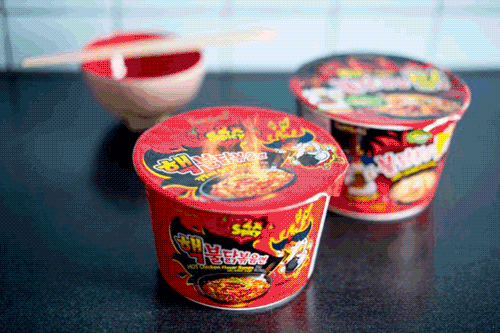Buldak spicy noodles are back on shelves in Denmark after the food authorities there canceled part of their recall decision concerning the famous Korean instant noodles product, originally issued due to their extreme spiciness and consequent health risks.
The Danish Veterinary and Food Administration announced, Monday (local time), that two of the three products that had been recalled were not harmful to health, based on updated risk assessments.
“Based on the new analysis results and the DTU Food Institute’s updated risk assessment, the administration concludes that two of the products, Samyang Buldak 2x Spicy Hot Chicken and Samyang Buldak Hot Chicken Stew, do not contain capsaicin levels as high as those reported by the distributors in the marketing,” the Danish administration said in a press release.



Notice the ban was based on the information given by the dealers themselves.
When the actual lab results came back it turned out to be not quite as strong as advertised.
So I guess it’s false advertising, but that’s probably another department.
False advertising by the Danish themselves.
Which is why I wrote dealer, not the manufacturer.
But where is the most likely place for the dealer to get those numbers?
Out of their ass
Maybe, but that now makes them guilty of false marketing, and Denmark is generally pretty strict about that too.
Yeah, they probably ate other spicier food along with the Buldak stuff, causing their excrement to have a higher amount of capsaicin, than was in the original product. Hence, the false advertising.
CC BY-NC-SA 4.0
The scoville scale is itself fairly flakey.
Using the amount of capsaicin per unit of weight would make much more sense.
That’s generally how SCU are measured nowadays: They’re measuring the concentration of three or four types of molecule, then weigh them according to how hot they’re perceived to be. The scale itself is very sensible: “I have a litre bottle of red sriracha, it has 3000 SCU, that means if dilute it with 3000l (3m3) of water I won’t taste any heat any more”.
So they don’t have five guys tasting spicy sugar water any more?
My whole life is a lie!